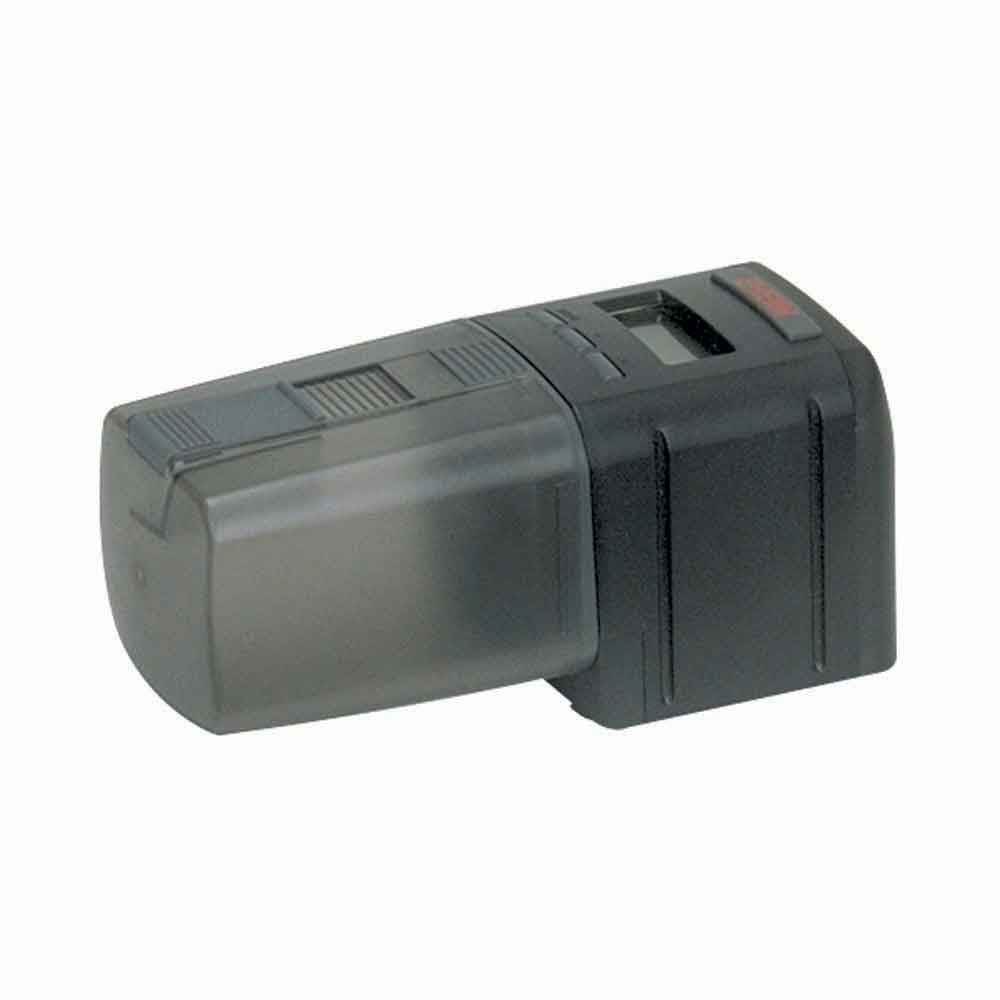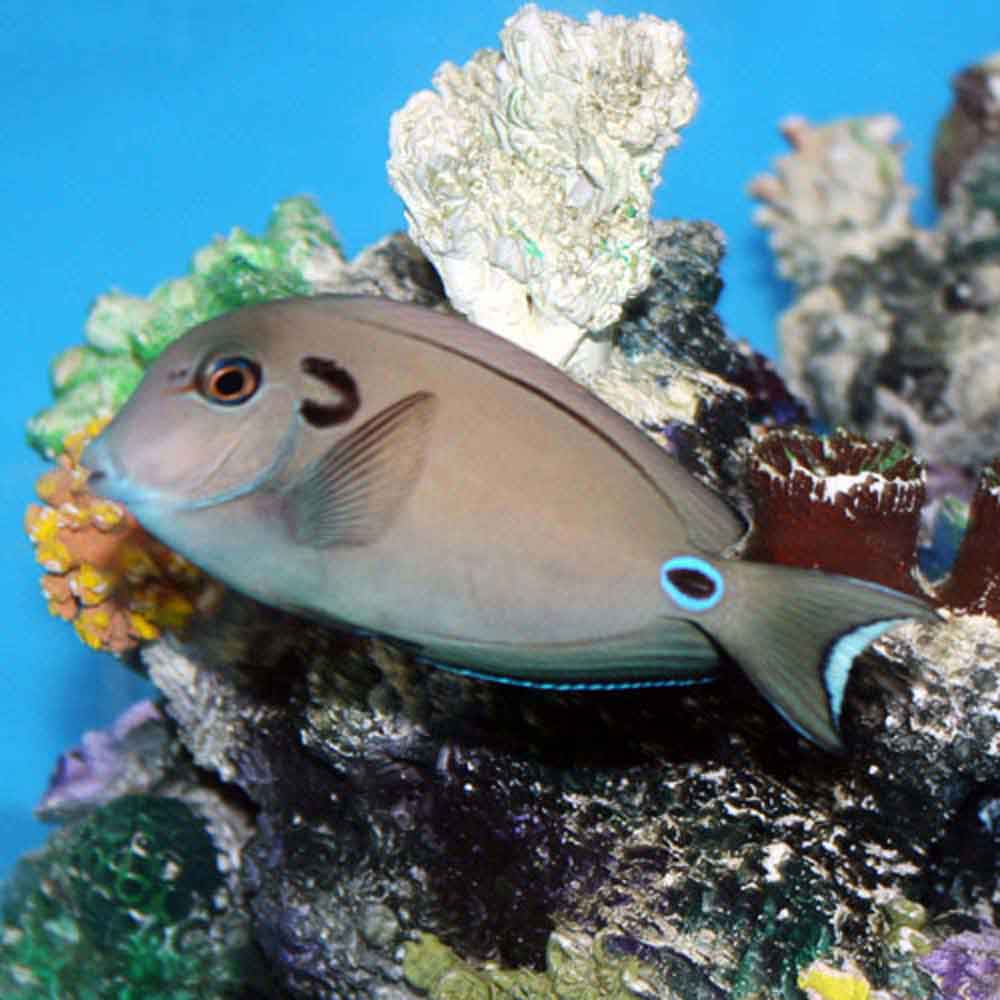 When you and your family go out of town on vacation or for the holidays, one important consideration is who takes care of the pets? You can board your dog or cat, or have a friend take care of them while you’re away with a set of pretty basic instructions for feeding and walks. Vacation fish care may take a little more preparation and training to ensure that your tank is cared for properly and any dire issues are addressed. Generally, depending on the duration of your time away, you’ll want to have a trusted and competent friend come to your home to monitor and feed the tank. Here are some things to consider in preparing that friend to successfully care for your tanks.
When you and your family go out of town on vacation or for the holidays, one important consideration is who takes care of the pets? You can board your dog or cat, or have a friend take care of them while you’re away with a set of pretty basic instructions for feeding and walks. Vacation fish care may take a little more preparation and training to ensure that your tank is cared for properly and any dire issues are addressed. Generally, depending on the duration of your time away, you’ll want to have a trusted and competent friend come to your home to monitor and feed the tank. Here are some things to consider in preparing that friend to successfully care for your tanks.
Feeding
Feeding is probably the first thing people think about when you think about leaving your fish for a few days. If you’re going away on a short weekend trip, chances are your tank will be fine without feedings, unless you’re keeping fry or some other “special needs” class of fish. If you’re going to be gone longer that 2 or 3 days, you’ll want to either invest in an automatic feeder or vacation food blocks, or leave detailed instructions with your tank-sitter on what, when, and how much to feed. Generally a few pinches of community food will be enough, but it may be much more complicated with a large reef aquarium or one stocked with various specialized feeders. If you have a complicated feeding regime, or if you’ll be taking an extended vacation, it’s probably a good idea to print a detailed list of instructions on feeding as a reference, and to go through the process at least once with your sitter in person to prevent overfeeding and other mishaps.
Maintenance and Chemistry
Your second concern will likely be general maintenance of the tank. This will depend on the state of your set up and, of course, the duration of your trip. A few days away and it’s doubtful that  anyone watching your tank will need to do more than top off the tank or maybe clean the glass. Extensive trips and circumstances may require that you leave instruction for water testing and/or a water change if necessary to keep your fish healthy. Testing, reading the results, and performing the necessary maintenance to keep the chemistry pristine can be very involved. Again it’s a good idea to leave detailed written instructions, all the equipment necessary easily accessible and certainly to involve your tank-sitter personally through the process when you do it so they’re more familiar with your routine. With a complex system, you can even invest in an automated controller/monitor that can give you updates on the status of your tank straight to a laptop or phone. These fantastic tools can eliminate a lot of confusion and aggravation.
anyone watching your tank will need to do more than top off the tank or maybe clean the glass. Extensive trips and circumstances may require that you leave instruction for water testing and/or a water change if necessary to keep your fish healthy. Testing, reading the results, and performing the necessary maintenance to keep the chemistry pristine can be very involved. Again it’s a good idea to leave detailed written instructions, all the equipment necessary easily accessible and certainly to involve your tank-sitter personally through the process when you do it so they’re more familiar with your routine. With a complex system, you can even invest in an automated controller/monitor that can give you updates on the status of your tank straight to a laptop or phone. These fantastic tools can eliminate a lot of confusion and aggravation.
Expecting the Unexpected
You hate to even think about something going seriously wrong with your tank while you’re out, but it’s best to be prepared just in case. One very real concern to consider is power outages. Storms can pop up at any time leaving your home and your aquarium in the dark! Most of us don’t have the luxury of applying a generator to keep the aquarium up and running, but there are a few things you can do to keep your fish safe if the power should fail for a few hours. One small piece of equipment we can’t recommend enough is a check valve. If you have sump filtration under the tank, a check valve will help to prevent back flow and a flood on your floor. Power filters may lose prime and might need a little help to get going again when the power comes back on. If the outage only lasts for a couple of hours your tank will probably be fine without added aeration, but you can keep a battery operated air pump on hand and prepared to keep the tank oxygenated if the power isn’t restored within a few hours. If you have someone checking the tank, the behavior of the fish will tell them if they’re struggling. If the fish are lingering at the surface of the tank it may be a sign that oxygen in the tank is depleted, and if a battery operated pump isn’t available, periodic emergency water changes may become necessary. It is a good idea to keep a source of prepared water available for just such an emergency, whether it be a few gallons of bottled dechlorinated tap water or a bucket or garbage can of pre-mixed salt water to replenish or replace water in the tank.
 Power outages or other sources of stress, even minor fluctuations in temperature or chemistry can cause an outbreak of ick or other health issues for aquatic organisms. It’s a good idea to keep some basic medications on hand in case you need to treat your tank quickly. We recommend that you stock an anti-parasitic treatment and a broad spectrum antibiotic to treat fungus and other secondary issues that may arise. Make sure your tank sitter doesn’t have any questions about how to treat the tank if you won’t be around! Though the odds may be small that calamity will occur in your abscence, the best advice is to be prepared…after all, better safe than sorry!
Power outages or other sources of stress, even minor fluctuations in temperature or chemistry can cause an outbreak of ick or other health issues for aquatic organisms. It’s a good idea to keep some basic medications on hand in case you need to treat your tank quickly. We recommend that you stock an anti-parasitic treatment and a broad spectrum antibiotic to treat fungus and other secondary issues that may arise. Make sure your tank sitter doesn’t have any questions about how to treat the tank if you won’t be around! Though the odds may be small that calamity will occur in your abscence, the best advice is to be prepared…after all, better safe than sorry!
 That Fish Blog – Aquarium Advice and Information
That Fish Blog – Aquarium Advice and Information

Very useful. Thanks for Posting! especially when you have spent alot of time/money on your setup
Thank you for this article, very useful! I am a fish keeper myself, but never had thought about power outages, something I will need to keep in my mind for the future.
Really good information to be aware of for vacations. I recommend a battery backup in general for all air pumps and filters. I got one at BestBuy in the computer section that can power my two filters and air pump for a few hours if the power goes out.